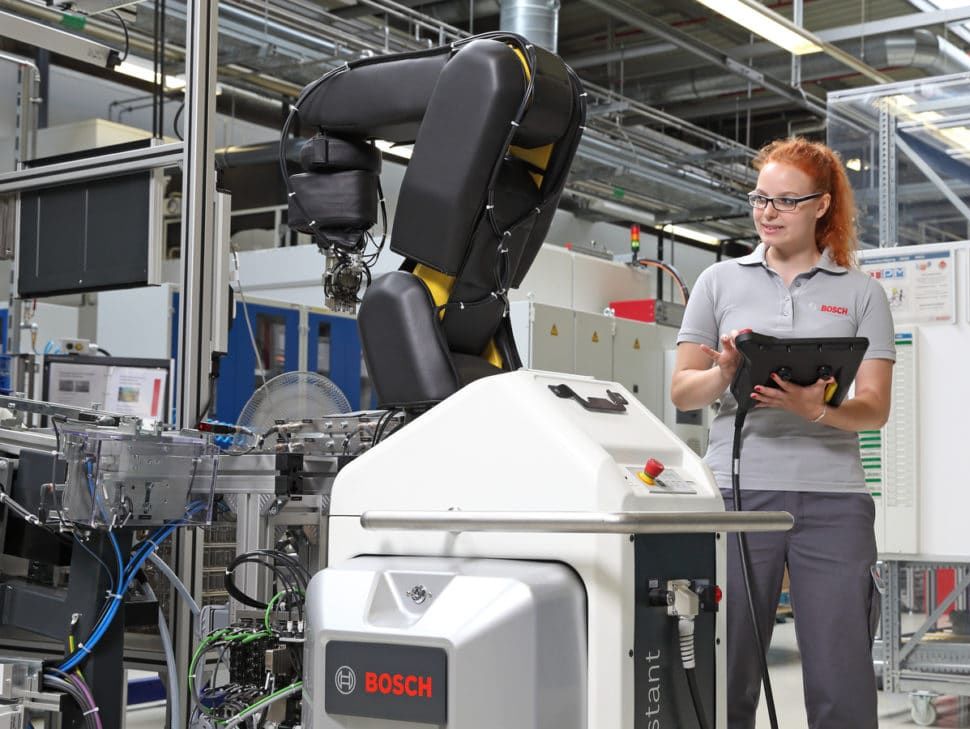Bosch commits to global industrial AIoT
- August 25, 2021
- William Payne

Bosch plans to invest 500 million euros over the next five years in a combination of IoT and AI technology to modernise its manufacturing facilities. The company expects that its investment will save it 1 billion euros by 2025.
A major thrust of the investment will be directed at developing AIoT, the marriage of AI with IoT. The company struggles at present with gathering feedback on its products’ performance and use in the field. It is hoped that by building AIoT into its products, it will be able to by-pass the current manual processes that it employs to discover how its customers use its products, and accelerate re-engineering and re-design of its products to ensure competitiveness.
“The only way to discover how our products are used in the field is to observe them, to ask customers to give us feedback, and so on. All of these processes are manual, expensive, and time consuming. Updating a product takes years,” said Michael Bolle, CTO and Chief Digital Officer of Bosch. “To remedy this, we are proposing AIoT. “By combining IoT and artificial intelligence, we are in a position to keep track of our products, to see how our customers use them. With this data, we can apply machine learning to update it much faster. We can also ensure that our products remain relevant in the field ”.
Bosch has already implement AIoT to several of the goods it manufactures, including the company’s Cookit food processor, and to its driving systems.
However, before Bosch moves ahead in implementing AIoT across the range of its products, the company want to adapt AIoT in its own manufacturing facilities.
Bosch has a network of 240 factories around the world. At its industrial sites, there are a total of 4,000 production lines, which include 100,000 machines.
The company is creating a platform called BMLP (Bosch Manufacturing Logistic Platform NDLR) to access the data of its factories and equipment. It plans to impose an overall data architecture on its industrial data that will be overarching its industrial infrastructure . Once its industrial data is structured within a framework, the company will then apply machine learning.
According to Bolle, the company will deploy AI and machine learning globally, beginning with its powertrain division, which represents 800 production lines in 50 factories.
However the company faces a number of challenges in implementing its vision across the breadth of its manufacturing base. Industrial data collected must be labelled and categorised, a job that is being done by humans, which represents a significant cost. Another challenge lies in the transparency and explainability of AI: the company wants to move away from ‘black box’ AI solutions towards explainable AI, which it sees as requiring a number of steps involving “grey boxes” before reaching fully transparent “white box” explainable AI.
The BMLP platform communicates with the Nexeed manufacturing execution system (MES) from Bosch. The MES automatically collects data in near real time from tens of thousands of sensors to send them to a processing platform which applies action recommendation algorithms.
Some correction processes will be automated, such as design deviations on an assembly line. Cameras placed along the production lines are used to apply computer vision models.
The company has plans to market its BMLP platform through its subsidiary Bosch Connected Industries.




